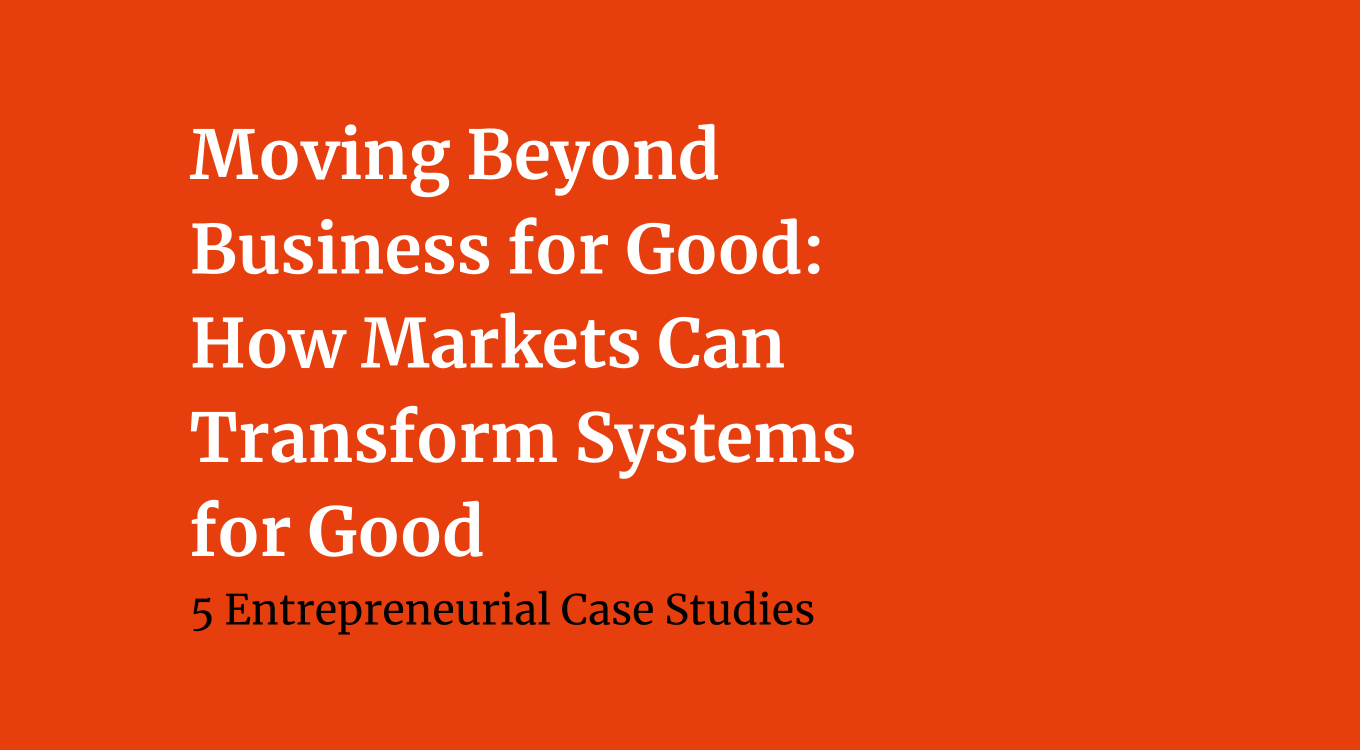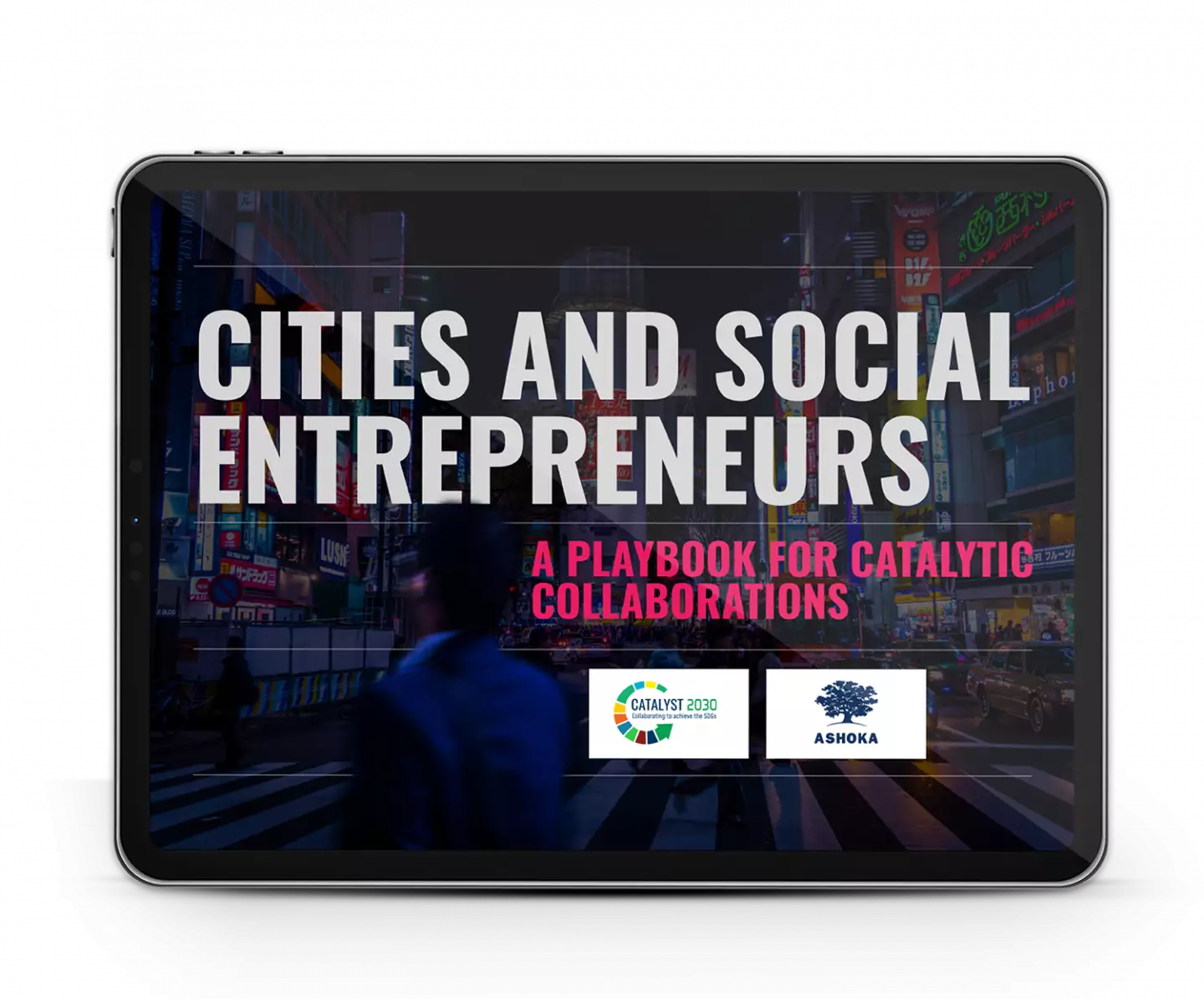
Can you use a business model not just to do well, but also to radically change a system? At Ashoka, the global network for the world’s leading social entrepreneurs, we’ve met hundreds of groundbreaking entrepreneurs around the world who have taught us that social businesses can be a powerful pathway to social change.
Entrepreneurs we’ve learned from so far include the first free provider of Massive Open Online Courses (MOOCs) that’s registered over 12 million students, and an Indian eye care company that has provided affordable cataract surgery for over 32 million low-income patients, the majority of whom were treated for free or at a minimal cost.
The fact that there are successful models for market-based social impact, however, does not mean that it’s easy. Social entrepreneurs have repeatedly asked: what are practical examples they can learn from? They want examples of how to use business models to reach a greater scale of social impact or to affect systems change, in a way that doesn’t compromise their original social mission.
To address this challenge, we selected five social entrepreneurs from diverse sectors that serve as examples of market-based models of systems change.
Why Does Market-Based Systems-Change Matter?
Traditional models of social impact are funded through philanthropy: an NGO raises grants and donations and uses these to provide services for free to beneficiaries. However, social entrepreneurs often adopt business models to deliver increased impact through a market-based approach.
Why would a social entrepreneur prefer a market-based solution over one that is funded for free? There are several reasons social entrepreneurs often cite:
Firstly, with the right solution, it’s possible to bring in greater capital than is possible with aid or other models. The volume of investment capital far exceeds the capacity of the donor markets.
We’ve met hundreds of groundbreaking entrepreneurs around the world who have taught us that social businesses can be a powerful pathway to social change.
Secondly, it enables the entrepreneur to diversify their funding sources away from philanthropy, which can be quite precarious. And by switching to an earned revenue model in which they can earn income directly from customers, social ventures also have the potential to be more sustainable than projects that rely solely on donations for funding.
Thirdly, market-based solutions can mobilize many actors because of engaging partners, competitors, suppliers, and consumers along a supply chain. The market is a particularly powerful way of opening up systems as, in contrast to NGOs (Non-Governmental Organizations) or aid agencies, actors in the same market begin to cooperate and collaborate with many others to solve a shared problem.
Consider a platform such as M-Pesa, for example. M-Pesa is the mobile money platform through which a significant portion of transactions in Kenya are now conducted. Launched as a private service by telecoms provider Safaricom, M-Pesa has enabled millions of small businesses and vendors to move their services onto the platform, improving security for small shopkeepers and reducing the risk of cash transactions.
Finally, the first market mover is often also a market catalyzer. By demonstrating there is a new, untapped opportunity, they open up the possibility for many others to also participate in the marketplace and thereby accelerate the spread of a solution.


